Moiz Hassan
The Digital Transformation in Health: How AI Can Improve the Performance of Health Systems
Sep 24, 2024Abstract:Mobile health has the potential to revolutionize health care delivery and patient engagement. In this work, we discuss how integrating Artificial Intelligence into digital health applications-focused on supply chain, patient management, and capacity building, among other use cases-can improve the health system and public health performance. We present an Artificial Intelligence and Reinforcement Learning platform that allows the delivery of adaptive interventions whose impact can be optimized through experimentation and real-time monitoring. The system can integrate multiple data sources and digital health applications. The flexibility of this platform to connect to various mobile health applications and digital devices and send personalized recommendations based on past data and predictions can significantly improve the impact of digital tools on health system outcomes. The potential for resource-poor settings, where the impact of this approach on health outcomes could be more decisive, is discussed specifically. This framework is, however, similarly applicable to improving efficiency in health systems where scarcity is not an issue.
Adaptive User Journeys in Pharma E-Commerce with Reinforcement Learning: Insights from SwipeRx
Aug 15, 2024



Abstract:This paper introduces a reinforcement learning (RL) platform that enhances end-to-end user journeys in healthcare digital tools through personalization. We explore a case study with SwipeRx, the most popular all-in-one app for pharmacists in Southeast Asia, demonstrating how the platform can be used to personalize and adapt user experiences. Our RL framework is tested through a series of experiments with product recommendations tailored to each pharmacy based on real-time information on their purchasing history and in-app engagement, showing a significant increase in basket size. By integrating adaptive interventions into existing mobile health solutions and enriching user journeys, our platform offers a scalable solution to improve pharmaceutical supply chain management, health worker capacity building, and clinical decision and patient care, ultimately contributing to better healthcare outcomes.
Optimizing HIV Patient Engagement with Reinforcement Learning in Resource-Limited Settings
Aug 14, 2024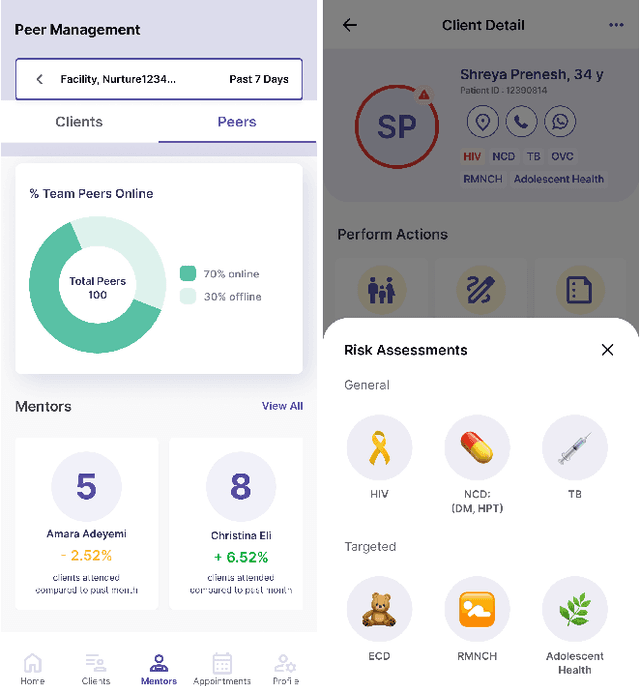
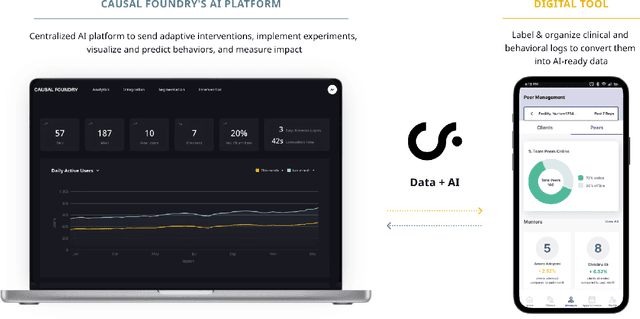
Abstract:By providing evidence-based clinical decision support, digital tools and electronic health records can revolutionize patient management, especially in resource-poor settings where fewer health workers are available and often need more training. When these tools are integrated with AI, they can offer personalized support and adaptive interventions, effectively connecting community health workers (CHWs) and healthcare facilities. The CHARM (Community Health Access & Resource Management) app is an AI-native mobile app for CHWs. Developed through a joint partnership of Causal Foundry (CF) and mothers2mothers (m2m), CHARM empowers CHWs, mainly local women, by streamlining case management, enhancing learning, and improving communication. This paper details CHARM's development, integration, and upcoming reinforcement learning-based adaptive interventions, all aimed at enhancing health worker engagement, efficiency, and patient outcomes, thereby enhancing CHWs' capabilities and community health.
Adaptive Behavioral AI: Reinforcement Learning to Enhance Pharmacy Services
Aug 14, 2024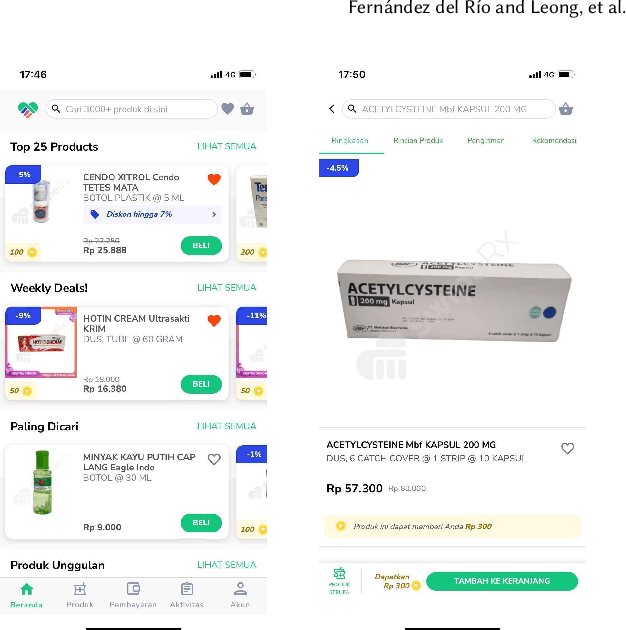
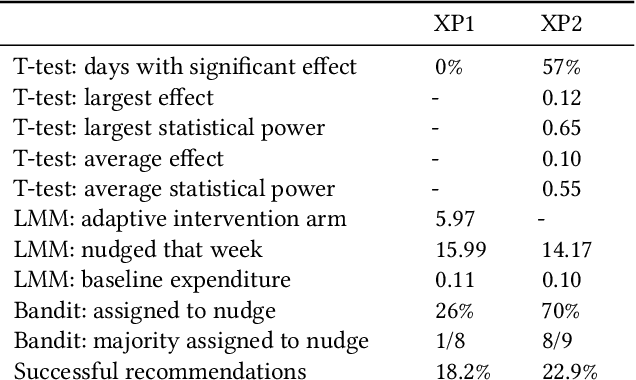
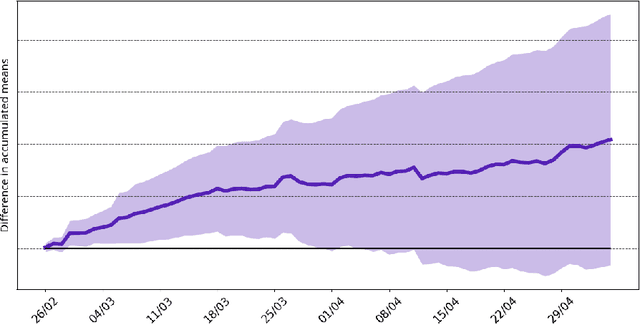
Abstract:Pharmacies are critical in healthcare systems, particularly in low- and middle-income countries. Procuring pharmacists with the right behavioral interventions or nudges can enhance their skills, public health awareness, and pharmacy inventory management, ensuring access to essential medicines that ultimately benefit their patients. We introduce a reinforcement learning operational system to deliver personalized behavioral interventions through mobile health applications. We illustrate its potential by discussing a series of initial experiments run with SwipeRx, an all-in-one app for pharmacists, including B2B e-commerce, in Indonesia. The proposed method has broader applications extending beyond pharmacy operations to optimize healthcare delivery.
 Add to Chrome
Add to Chrome Add to Firefox
Add to Firefox Add to Edge
Add to Edge